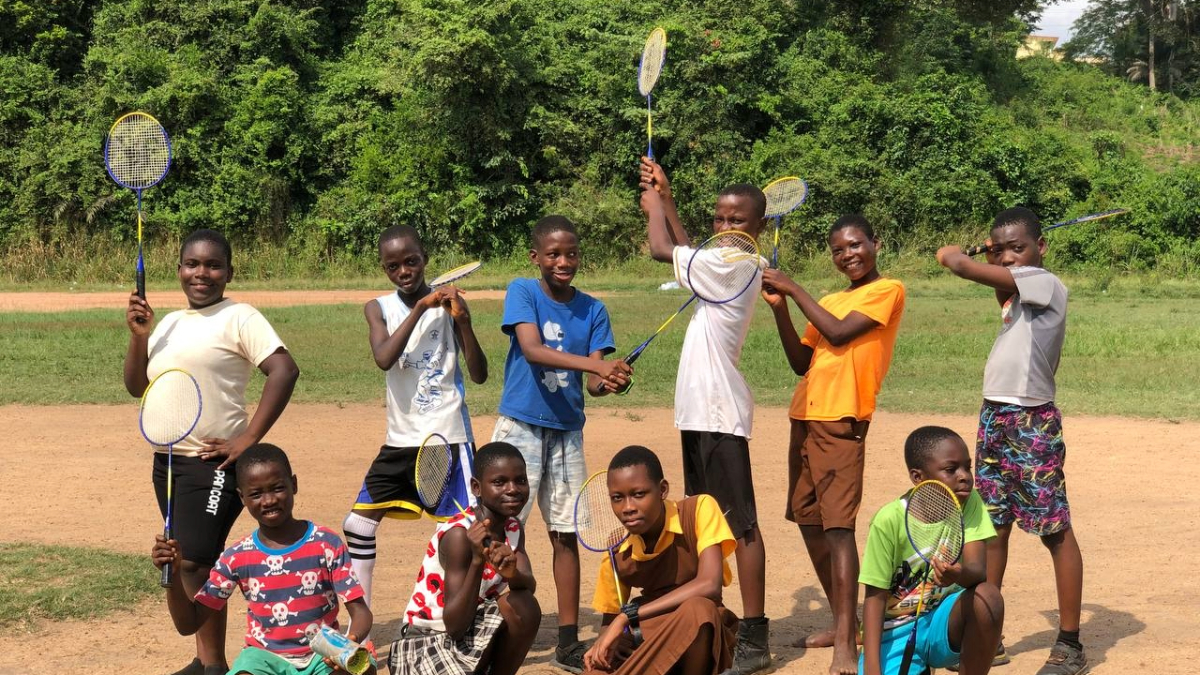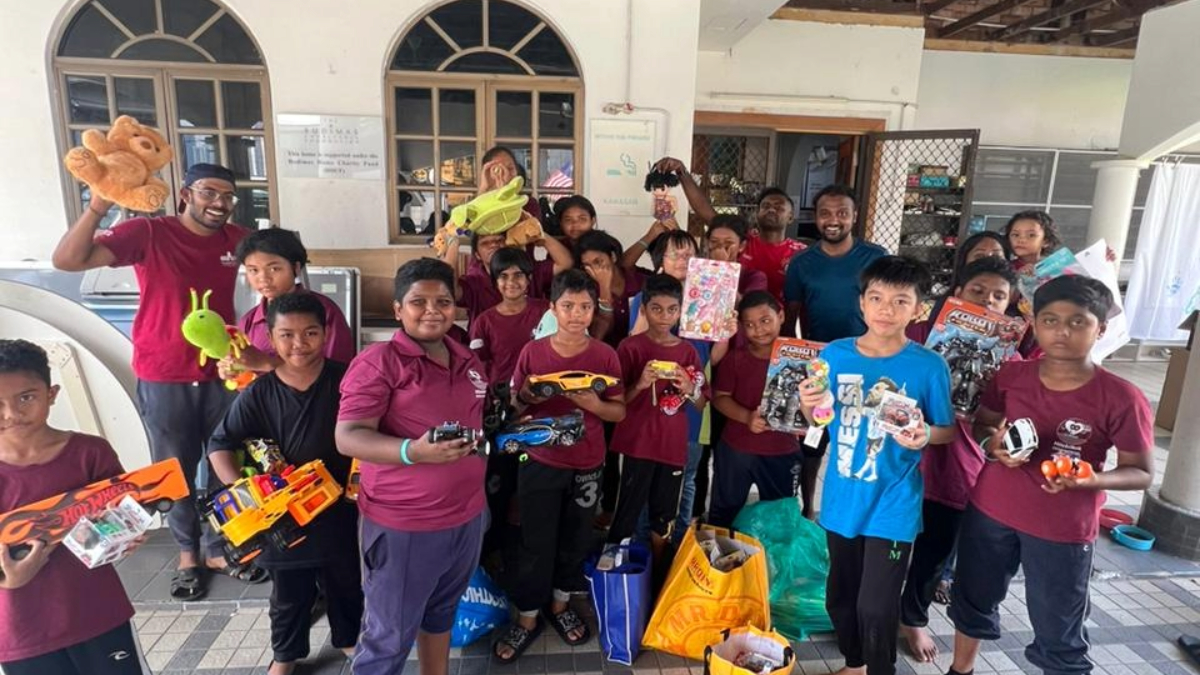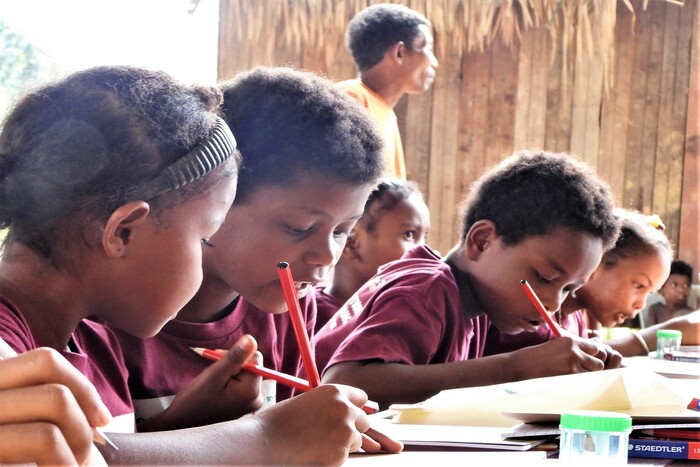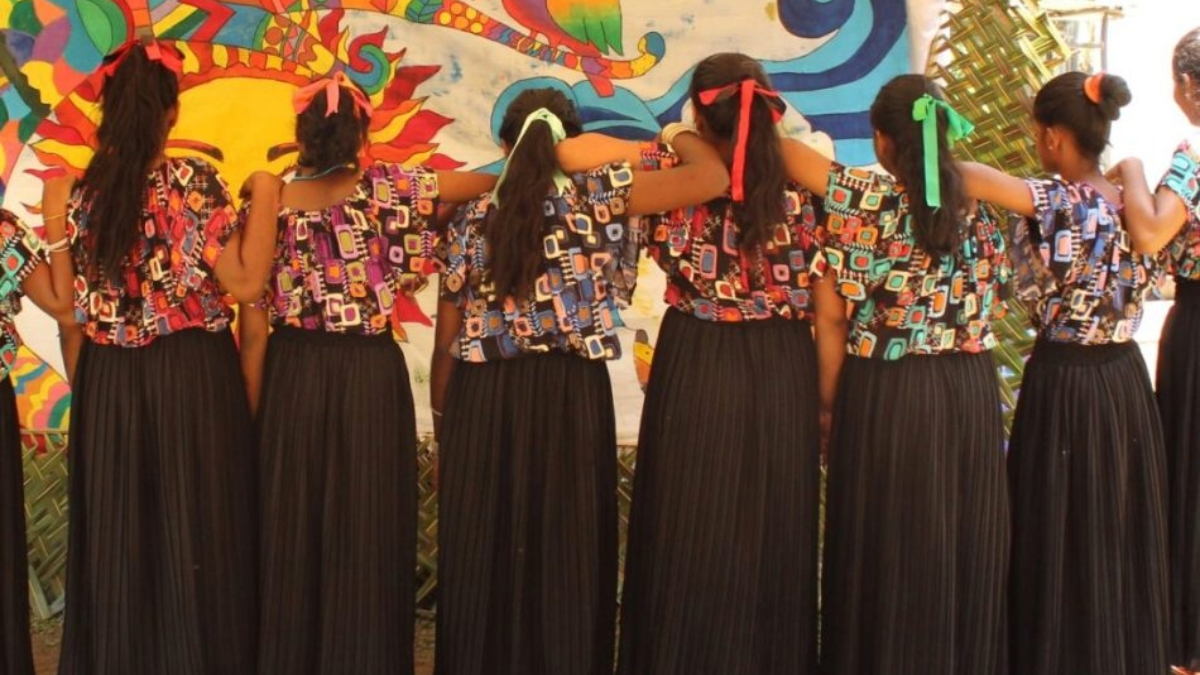Empowering inclusion in Ghana is at the heart of RYTHM Foundation’s ongoing collaboration with its partner, The ANOPA Project (ANOPA). Over the past few months, this partnership has rolled out impactful initiatives in Cape Coast and Accra to support individuals with visual impairments and intellectual and developmental disabilities (IDDs).
By enhancing infrastructure, providing inclusive education, and promoting vocational training and sports, ANOPA’s programmes aim to create a more equitable and inclusive society in Ghana.
Transformative Disability Workshops
A disability inclusion workshop in September trained 30 teachers to cultivate inclusive classrooms, equipping them with skills to address diverse learning needs. This initiative laid the foundation for nurturing inclusive education systems.
In October, an informative seminar brought together 67 parents and educators to empower families and schools with practical tools for supporting children with disabilities. These workshops underline ANOPA’s commitment to empowering communities and promoting lasting change.
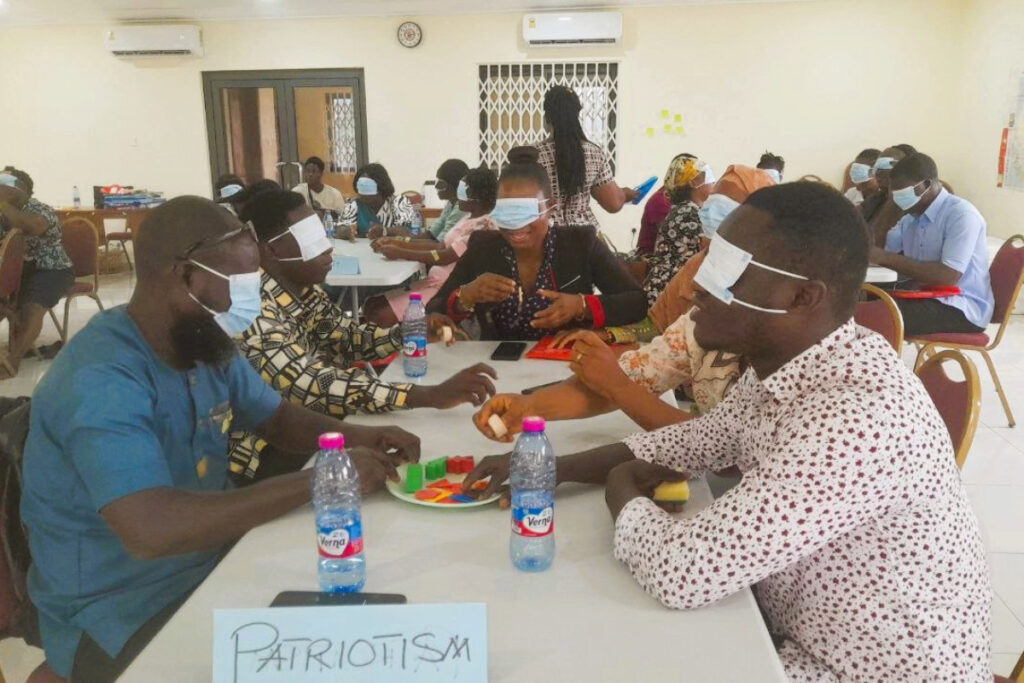
The Head of RYTHM Foundation, Santhi Periasamy, highlighted the importance of these efforts: “Empowering educators and families is key to building inclusive communities. These programmes ensure that every child can thrive, no matter their ability.”
Educational and Vocational Support
RYTHM and ANOPA’s inclusion efforts also extend to educational support. The partnership recently provided 12 visually and hearing-impaired students with essential academic resources. This initiative bridges educational gaps and ensures equitable opportunities for all learners.
Vocational training programmes further advanced the joint alliance. At Aboom Special School, students with IDDs learned bead and bag-making skills, fostering economic independence. Simultaneously, a vegetable gardening programme at Dzorwulu Special School equipped 20 students with sustainable life skills, promoting food security and confidence.
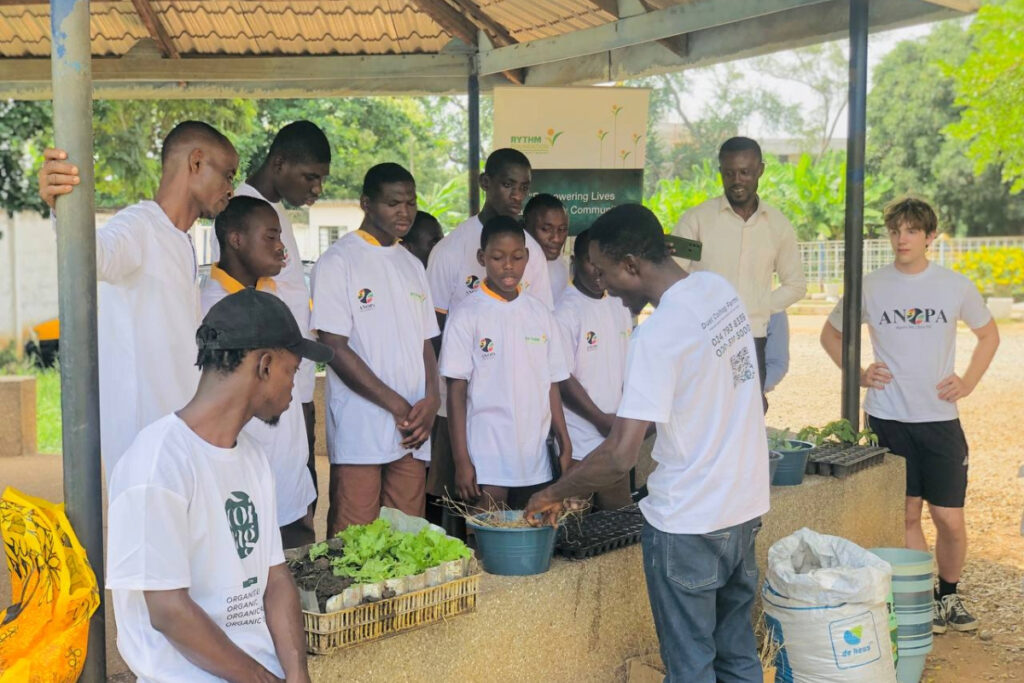
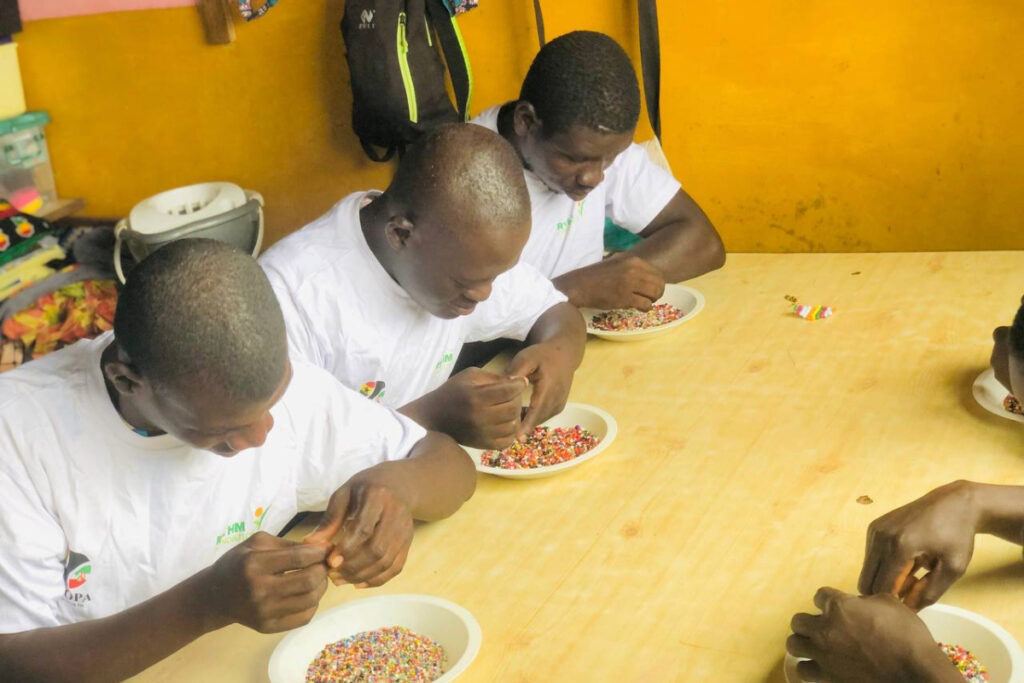
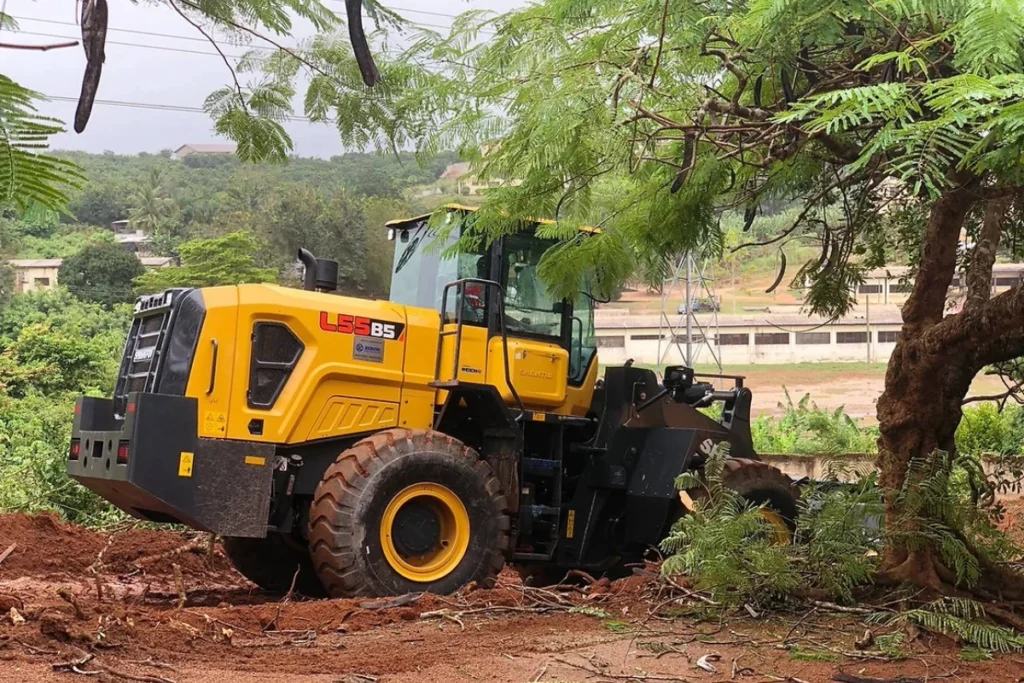

Infrastructure and Sports for Inclusion
Infrastructure upgrades during this period transformed accessibility and resource availability. Aboom Special School’s mechanised water facility now benefits 177 students and staff. Meanwhile, constructing pathways and staircases at Ghana National Basic Inclusive School improved mobility for over 1,000 community members.
Inclusive sports programmes brought together visually impaired, sighted, and IDD students, fostering teamwork and mutual understanding among 173 participants. Additionally, ANOPA ensured the re-enrolment of two deaf students, safeguarding their educational journeys.
“These programmes inspire communities to embrace inclusion and celebrate diversity,” Santhi remarked.
The RYTHM-ANOPA collaboration exemplifies how impactful partnerships can drive inclusion and create lasting change. These initiatives are breaking barriers, transforming lives, and empowering communities across Ghana by combining resources, expertise, and a shared commitment to equity.
Learn more about this partnership and how it’s fostering inclusion through education, vocational training, and sports that inspire hope, celebrate diversity, and ensure no one is left behind.

